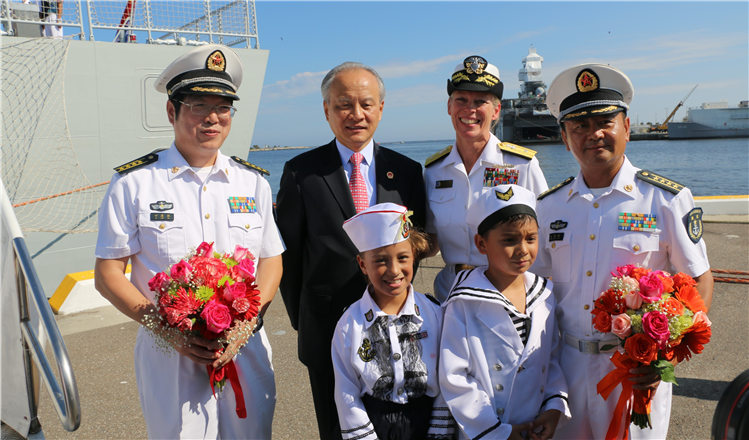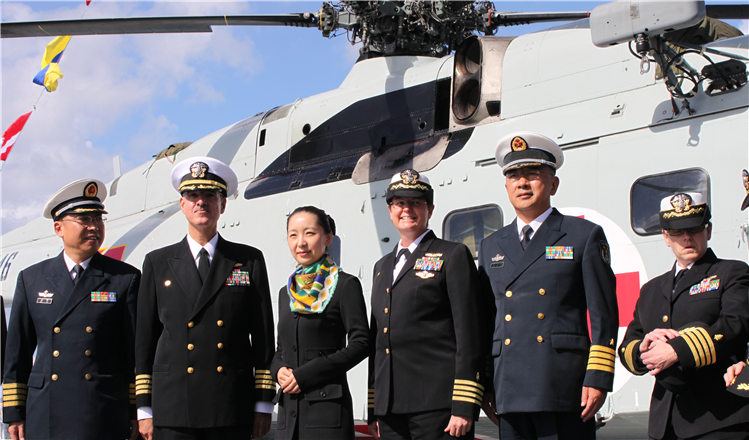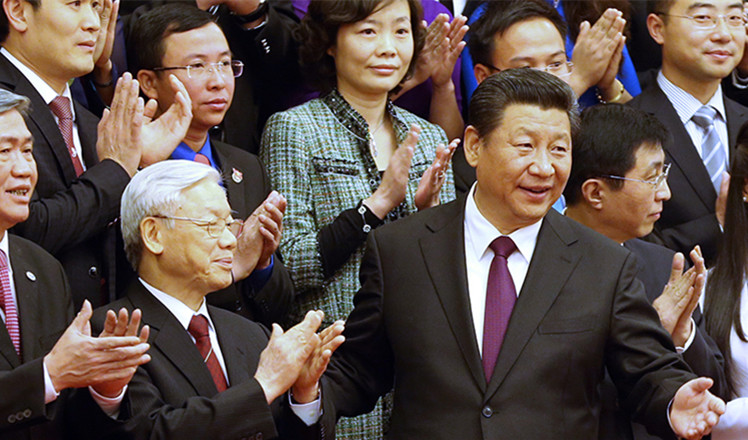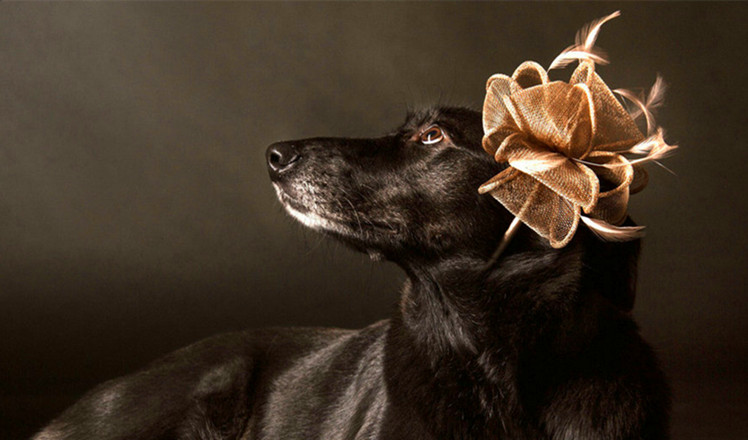Chef finds 'soul' of Chinese food in ingredients
Updated: 2015-11-06 08:07
By Liu Zhihua(China Daily)
|
||||||||
Nearly 28 years ago, when Tony Choo enrolled in the Singapore Hotel and Tourism Education Center, a famous hospitality school, he learned Western cooking.
So how did the 45-year-old wind up being one of the top Chinese cuisine chefs in Beijing's dining world?
"I like the generous and liberal style of Chinese cuisine and the feeling of cooking food in a busy and lively Chinese kitchen," says Choo, who won the Culinary Art Master Award from the Les Amis D'Escoffier Society in 2011, and was crowned the winner in CCTV's Greatest Chef show in 2014, beating Michelin-starred competitor from Italy.
Born in 1970 in Singapore, Choo started working as helper in Cantonese restaurants in 1991, to learn Chinese cuisine, after he dropped out from the Singapore school that had Western cuisine dominating the class timetable.
He learned fast, and in 2003, while working for Singapore's TungLok Group of restaurants, he was assigned to Beijing to open the company's new eatery My Humble House.
The restaurant made an impact on dining in the Chinese capital as soon as it opened in 2004, due to its modern Chinese cuisine concept that pays great attention to Western cuisine, especially when it comes to presentation.
However, despite the restaurant's popularity among diners, Choo felt at a loss when it came to Chinese cuisine, until a food critic commented that his dishes had no "soul", because they lacked authentic Chinese taste, Choo recalls.
"I then realized that Chinese cuisine must be 100 percent Chinese, and should not be combined with Western cuisine," Choo says.
Chinese cuisine is based on myriad combinations of cooking methods, cutting, and ingredients, and just like it is wrong to cook kung-pao chicken with Western vinaigrette or fruit sauces, it is also wrong to mix Western flavors or cooking methods with other Chinese cooking, Choo insists.
He left My Humble House in 2007 to open his own kitchen, and in 2011, he joined JUN Chinese restaurant in the Crowne Plaza Beijing Sun Palace, where he has the maximum freedom to practice his cooking philosophy.
Now his resume is studded with awards both from China and abroad for his culinary skills and innovation, and he says diners often come to the restaurant just for his most recent creations.
He updates about 50 percent of the dishes on the restaurant menu every year.
Seeking inspiration from all over China, the only thing that matters to him is cooking authentic Chinese dishes.
"Authentic doesn't mean I cannot innovate, only that innovation must not tangle with flavors that are not Chinese," Choo says.
His most recent creations include special hairy-crab flavors - he braises them with Gastrodia elata, a herb used in Chinese medicine to treat headache, convulsions, and hypertension, and in another rendition with green plum wine, to create a novel and savory taste.
Choo says he developed an interest in cooking as a small child, when he often helped heat leftovers in the family kitchen, and he has never regretted the decision to drop out of the Singapore Hotel and Tourism Education Center and learn the art of Chinese cuisine.
liuzhihua@chinadaily.com.cn
(China Daily 11/06/2015 page19)

 PLA Navy fleet pays visit to Florida
PLA Navy fleet pays visit to Florida
 Top Gun: Breathtaking moments of China Air Force
Top Gun: Breathtaking moments of China Air Force
 Peace Ark docks at San Diego
Peace Ark docks at San Diego
 Clinton calls for US minimum wage increase to $12 an hour
Clinton calls for US minimum wage increase to $12 an hour
 High-level exchanges between China and Vietnam
High-level exchanges between China and Vietnam
 Photographer presents 'aristopets'
Photographer presents 'aristopets'
 Photograph portraying Chinese fishermen wins top prize
Photograph portraying Chinese fishermen wins top prize
 World's top 10 economies for doing business
World's top 10 economies for doing business
Most Viewed
Editor's Picks

|

|

|

|

|

|
Today's Top News
China, not Canada, is top US trade partner
Tu first Chinese to win Nobel Prize in Medicine
Huntsman says Sino-US relationship needs common goals
Xi pledges $2 billion to help developing countries
Young people from US look forward to Xi's state visit: Survey
US to accept more refugees than planned
Li calls on State-owned firms to tap more global markets
Apple's iOS App Store suffers first major attack
US Weekly

|

|







